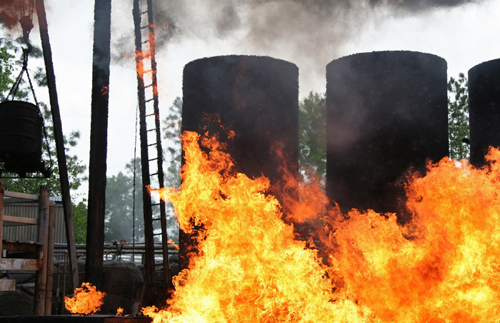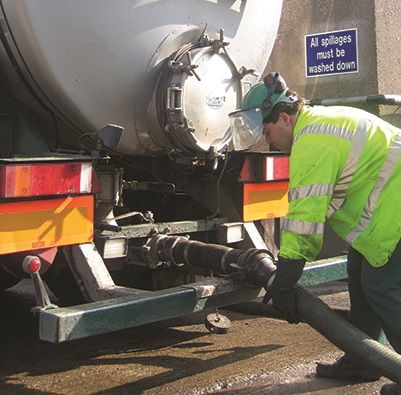Industrial fires: the hidden costs
Large industrial fires can have a devastating impact on local communities.
Only in the last week have two hit the headlines. A 300m exclusion zone was enforced after fire engulfed a garden centre near to Heathrow Airport. The second fire, closer to GENeco’s main site in Bristol, involved a scrapyard and needed over 100 firefighters to extinguish the blaze.
It was therefore with great interest that I read ‘In Hot Water’ in November’s CIWM Journal that the most likely environmental damage caused by fire at a waste handling site is not as a result of the fire itself, but the incredible volumes of water used to ensure the flames’ destructive powers are neutralised.

Insufficient containment and storage, alongside improper treatment of the spent firewater, can result in massive financial costs as well as potentially damaging the reputation of the business involved. Under the ‘polluter pays’ principle, all remediation costs associated with environmental damages can be claimed against the company who owns and operates the site.
Perhaps the most famous industrial fire of recent years took place at the Buncefield oil storage depot, where ignition of petrol vapour resulted in the UK’s largest peacetime blaze. The failure of bunds and drains at the site resulted in groundwater contamination from spent fire-fighting foam, the effects of which will persist for many decades. The site’s owners were left with a £9.5M fine to pay for the clean-up operation.
From a waste management perspective, it has been interesting to see how the industry has moved to tackle these tricky sorts of wastes, moving away from traditional disposal routes towards more sustainable and economically viable treatment methods.

The transfer and disposal of liquid waste is tightly regulated to ensure that it is handled in a responsible way and treated at an appropriate facility. GENeco operates 11 treatment facilities across the south-west, and is set-up to deal with large volumes of liquid waste. We have experience in dealing with liquids arising from emergency situations such as industrial fires and flooding incidents.
If you would like any more information on this subject, please get in touch with one of the team.
